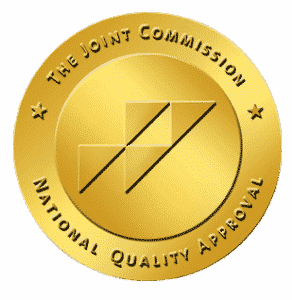Recovering from drug or alcohol addiction is not a quick or straightforward process. It takes time for the body to get over substance dependence, deal with withdrawal symptoms, and overcome the urge to use. Relapse occurs when someone who has completed a drug addiction treatment program goes back to what they were using after being abstinent for some time.
Relapse, unfortunately, is not uncommon. The National Institute on Drug Abuse estimates that between 40 and 60% of people who were once addicted will eventually relapse despite having completed treatment. Being aware of relapse and having a plan to deal with it can help prevent someone from experiencing a full relapse and needing to return to treatment.
What Is Relapse Prevention?
During inpatient residential treatment, you will work with your addiction team not only on treating the roots of your addiction but on creating a relapse prevention plan. A relapse prevention plan consists of measures, techniques, and different tools you can use to avoid falling back into bad habits. During treatment, you learn to recognize the early stages of relapse, in which the chances of avoiding total relapse are the greatest. It is important to keep in mind that each step of recovery has its own risk of relapse. The tools & skills provided and taught during treatment are a combination of cognitive therapy skills and mind-body relaxation, helping you develop better coping skills. Another critical part of a relapse prevention plan is learning about triggers. The best way to avoid relapse is to avoid triggering situations, emotions, or even people who might spark the urge to use. Understanding who or what your triggers may be may help those in recovery to avoid relapse altogether.
Different Drug Relapse Prevention Strategies
Implementing reliable relapse prevention strategies can help to continue a stable and strong recovery in the face of triggering situations. During treatment, it is important to clearly outline the steps of your relapse prevention plan and ensure that these steps are specific as possible. It is also important to remember that life circumstances and situations change, and therefore relapse prevention strategies should be updated from time to time to keep them useful and relevant.
There are a variety of relapse prevention strategies that work well for many people. But something to keep in mind is that addiction and recovery are highly individual and therefore, what works for you may not work for somebody else or vice versa. Below are some of the most common relapse prevention strategies that tend to work well across the board.
Find Support
After you’ve completed treatment, join organizations that will help support your sobriety. Whether community recovery meetings or family groups, there are meetings in every city worldwide that can help support you during difficult times.
Make New Friends
Unfortunately, your friends and social circles from before rehab may no longer be the best people to spend time with. It is essential to find a new social support group that actively supports you in your sobriety. Being sober does not mean that you can’t be social; however, you must use caution to avoid triggering situations.
Watch for Triggers
After leaving rehab, and likely for many years after, you must be on guard and mindful of triggering circumstances in your environment. It is essential to remove as many of these triggers as possible to help maintain ongoing sobriety. For example, if stress triggered you to drink or use in the past, find healthy ways to remove that trigger.
Stay Busy
Staying busy is a common element in many aftercare programs. This is because boredom often leads to difficult emotional circumstances where one is more likely to consider turning to substances as a coping mechanism. A few positive ways to occupy your time could include volunteering, taking up a new hobby, exercising, or spending time with friends and family.
Keep Your Goals Reasonable
Recovery is a journey. One that will indeed take time. Be reasonable when you set personal expectations. Break your goals into smaller, incremental goals. This makes achieving success easier and will ultimately lead to long term recovery and sobriety.
Rise in Malibu Is Here to Help With Your Addiction
Seeking addiction treatment is the first step on the path to recovery and sobriety. If you are
ready to take that step, contact Rise in Malibu today. Our experienced addiction treatment professionals will work with you to create a treatment and relapse prevention program that meets your unique needs. Don’t let addiction control another day-contact Rise in Malibu today.







